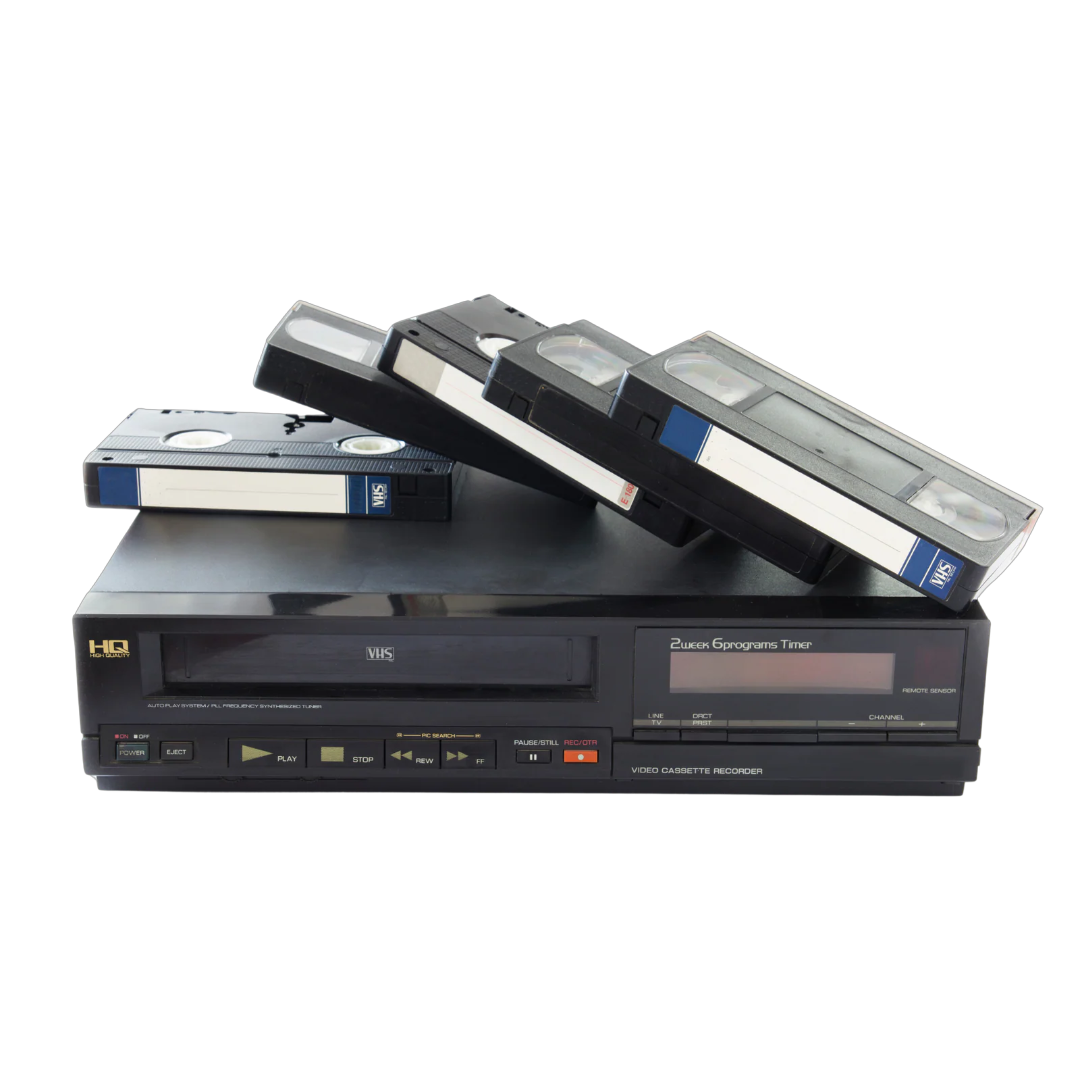The History of VHS Tapes
How a Plastic Rectangle Changed Home Entertainment Forever
Long before streaming, Blu-ray, or even DVDs, there was the VHS tape—a simple, clunky cassette that revolutionized how we watched movies, recorded memories, and consumed media at home.
Let’s rewind and explore the fascinating history of VHS.
What Is VHS?
VHS stands for Video Home System. It’s an analog videotape recording format developed by the Japanese company JVC (Japan Victor Company) in the 1970s.
VHS tapes use half-inch magnetic tape inside a plastic shell to record both video and audio. These tapes could be played back on a VCR (Video Cassette Recorder), allowing people to watch movies at home or record TV programs on their own.
The Beginning: VHS vs. Betamax
In 1976, JVC launched the first VHS system in Japan, followed by the U.S. release in 1977. Around the same time, Sony introduced its own format: Betamax.
What followed was known as the "format war" of the late 1970s and early 1980s.
While Betamax had slightly better image quality, VHS offered longer recording times, lower costs, and better compatibility—making it the format of choice for consumers. By the mid-1980s, VHS had won the battle.
The VHS Boom
Throughout the 1980s and early 1990s, VHS dominated:
Home movie rentals skyrocketed with the rise of stores like Blockbuster
Camcorders using VHS and VHS-C became common for home videos
TV recordings became easy thanks to built-in VCR timers
Educational and training videos were mass-produced on VHS
VHS changed the way people interacted with film and television—it brought the cinema experience into the living room.
The Decline
By the late 1990s, VHS began to fade as new technologies emerged:
DVDs offered better video quality, menus, and bonus features
Digital video recorders (DVRs) replaced recording on tape
Streaming and downloadable content removed the need for physical media altogether
By 2006, major film studios stopped releasing movies on VHS. And in 2016, the last known manufacturer of VCRs ceased production.
Did You Know?
The average VHS tape holds 2–6 hours of video
VHS was used not just for entertainment, but for security footage, training videos, and broadcast TV archives
VHS tapes degrade over time—losing quality after 10–20 years, even when stored properly
VHS Today: A Nostalgic Revival
Though obsolete in mainstream use, VHS has seen a small comeback among collectors, artists, and retro enthusiasts. Vintage tapes of cult classics, horror films, and 80s cartoons are now valuable collector’s items.
Meanwhile, countless families still have boxes of VHS tapes filled with irreplaceable memories—from birthdays to weddings to school plays.
That’s why digital conversion is so important.
Convert Your VHS Tapes Today
Don’t let your memories fade with time. We offer professional VHS-to-digital conversion services to preserve your videos forever in high-quality digital formats.
✅ USB, DVD, and cloud options
✅ Safe, careful tape handling
✅ Fast turnaround & local service
👉 Get a Free Quote Today
📞 Call us: 062-816-3397
